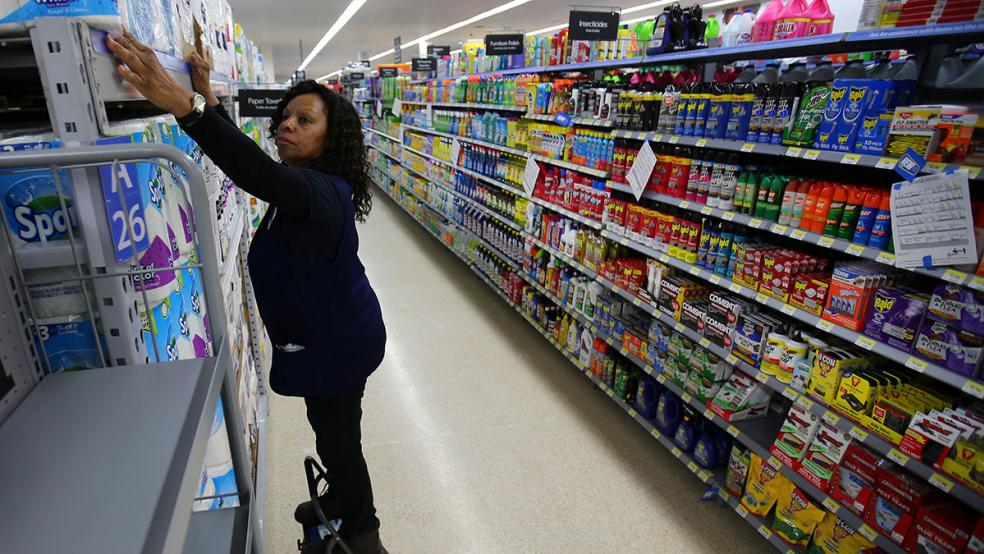The U.S. economy recorded another strong quarter from July to September, with gross domestic product expanding at a 2.8% annual rate, the Commerce Department announced Wednesday.
Although the results were two-tenths of a percentage point below the previous quarter’s growth rate, the report shows that the economy continues to chug along despite the high interest rates imposed by the Federal Reserve in its battle against inflation.
Growth was driven by consumer spending, which expanded at a 3.7% annualized rate, up from 2.8% in the second quarter. Government spending contributed as well, pushed by defense expenditures, which rose at a 14.9% annualized rate – the biggest jump since 2003, during the Second Gulf War. “The Pentagon has been rushing materiel out to Ukraine and Israel after the extensive delay early in the year, when the foreign aid package was held up in Congress for months,” Stephen Stanley, chief US economist at Santander Capital Markets, said in a note, per Bloomberg. Stanley added that the elevated spending for military goods will likely return to more typical levels in the months ahead.
Looking for a political boost: The White House hailed the report while linking the solid numbers with the policies enacted by the Biden administration. “Today’s GDP report shows how far we’ve come since I took office—from the worst economic crisis since the Great Depression to the strongest economy in the world,” President Joe Biden said in a statement. “Since I took office, the economy has grown 12.6%, we’ve had the lowest average unemployment in 50 years, 16 million jobs have been created, and incomes have risen $4,000 more than inflation.”
Biden also needled his critics, including the many experts who predicted that the U.S. economy would need to experience significant economic pain in order to beat inflation. “While critics thought we’d need a recession to lower inflation, instead we’ve grown around 3% a year on average, while inflation has fallen to the level right before the pandemic.”
With the election less than one week away, Biden called on voters to support his potential successor over her opponent, former President Donald Trump, who Biden said would impose tariffs that amount to a $4,000 a year tax hike. “We need to keep building on this progress,” Biden said. “The Vice President and I are fighting to lower costs on everyday goods—from housing and groceries to health care and child care—while Republicans fight for more tax breaks for the wealthy and large corporations.”
Rep. Brendan Boyle, the senior Democrat on the House Budget Committee, also drew a connection between specific policies and economic outcomes. Another quarter of solid growth “was supported by the historic investments delivered by Congressional Democrats and the Biden-Harris Administration, which have fueled job creation, expanded infrastructure, and revitalized American manufacturing,” Boyle said in a statement.
What the experts are saying: “The economy is doing really well,” said Torsten Slok, chief economist at Apollo Global Management, per The Wall Street Journal. Slok said the AI tech boom and government spending provided through legislation like the Inflation Reduction Act were contributing to the solid growth.
Bobby Kogan of the left-leaning Center for American Progress pointed out that the economy has been growing faster than projected before the pandemic. “This economic growth just can't be stopped,” he wrote on social media. “Economic growth has outpaced pre-COVID projections: the economy is stronger now than we thought it'd be before COVID even happened. And, critically, it's stronger now than we thought it would be when Biden and Harris took office.”
Robin Brooks, a senior fellow at the Brookings Institution, noted how exceptionally strong the U.S. recovery has been from the pandemic, especially by comparison to Europe. The eurozone has emerged weaker from the pandemic, while the United States is now stronger. “It was like that after 2008 and again after COVID,” he wrote on social media. “Reason is deeply structural. Lack of fiscal union in the Euro zone, so there's always insufficient stimulus...” Brooks emphasized that a robust government response to economic crises is essential. “Fiscal stimulus is a good thing if you can afford it,” he said. “The US can, but the Euro zone South cannot.”
CNBC’s Ron Insana laid out how good the economy looks, at least to investors. “In addition to an intact ‘soft landing’ scenario, the S&P 500 is up 22.55% year-to-date, outpacing almost every other stock market in the world,” he wrote on social media. “Growth is faster, inflation is lower, productivity is higher and household net worth is at a record. It's not an opinion, it is a fact.”




